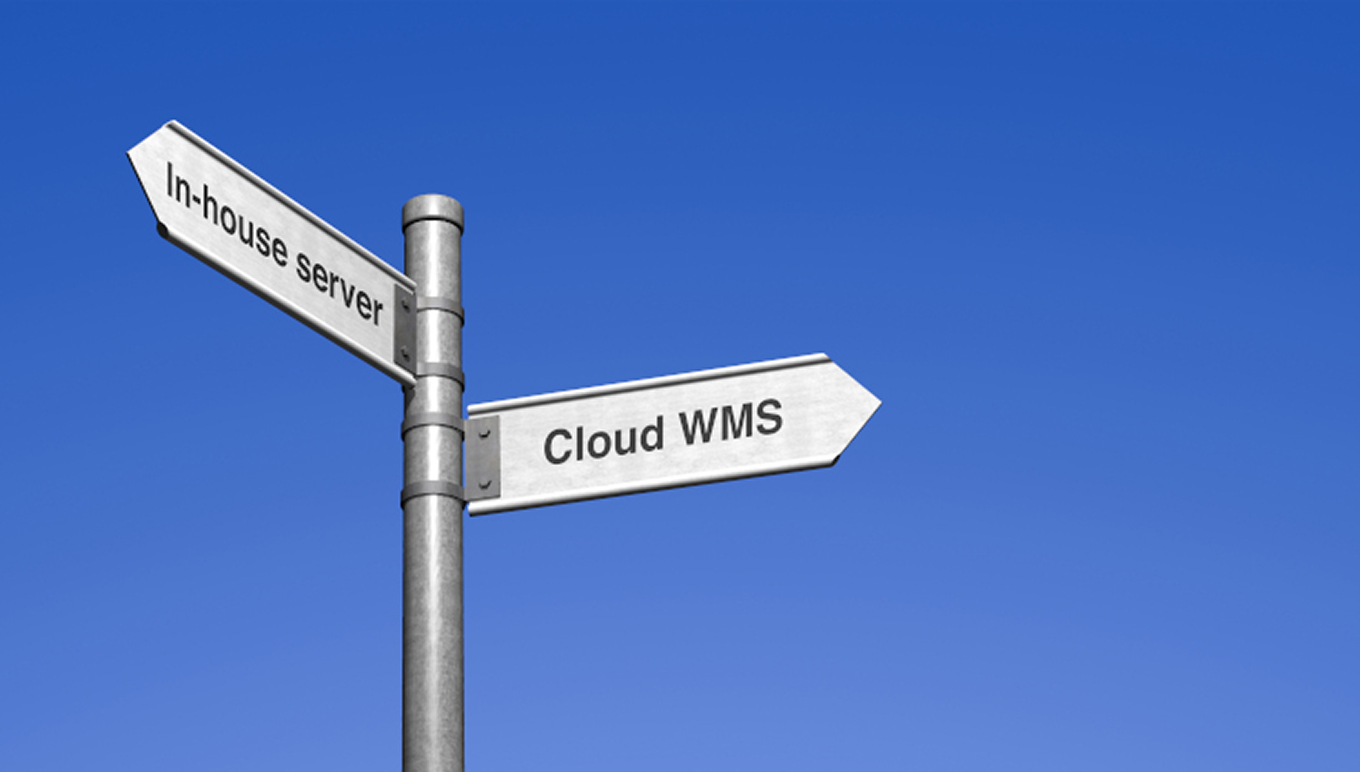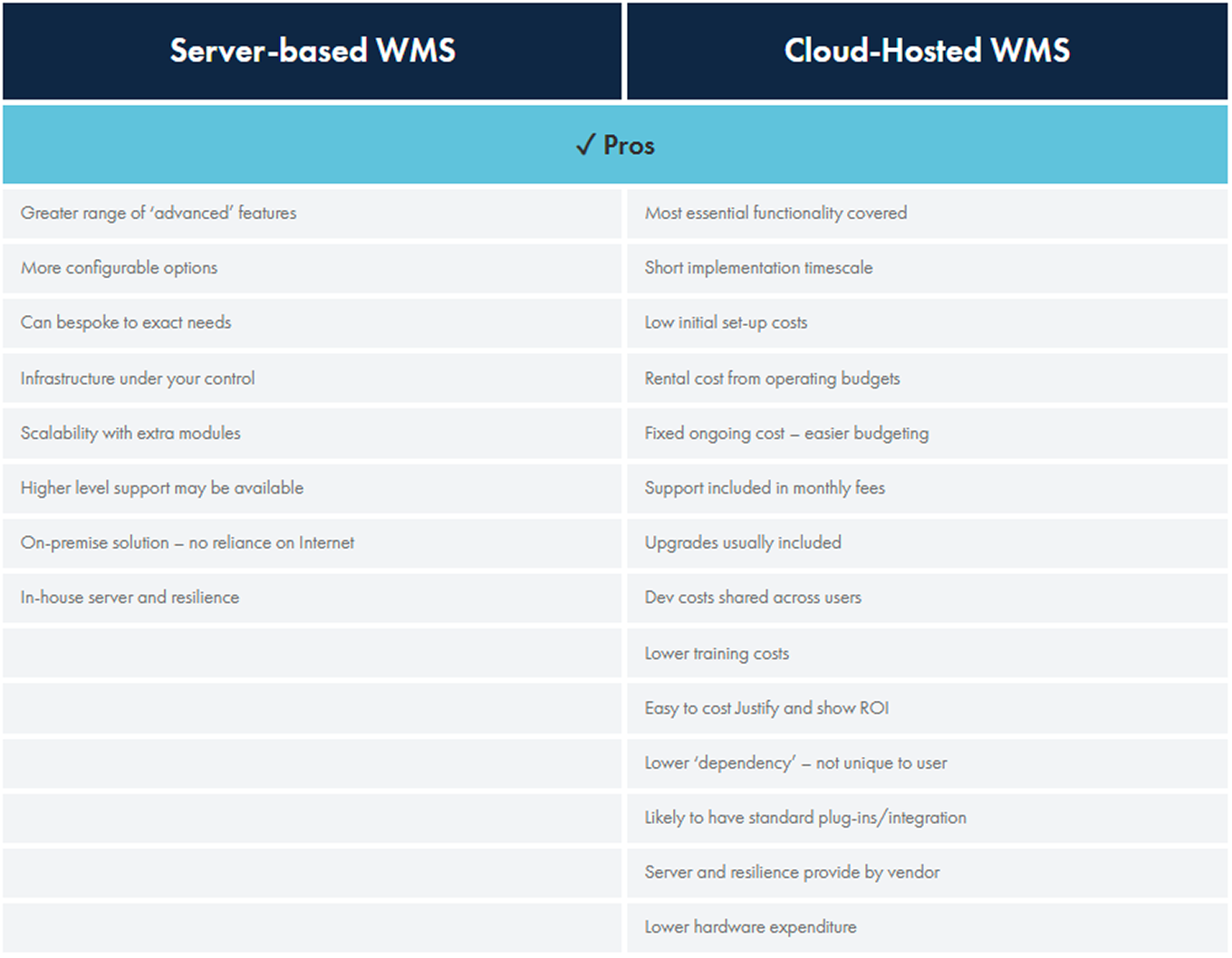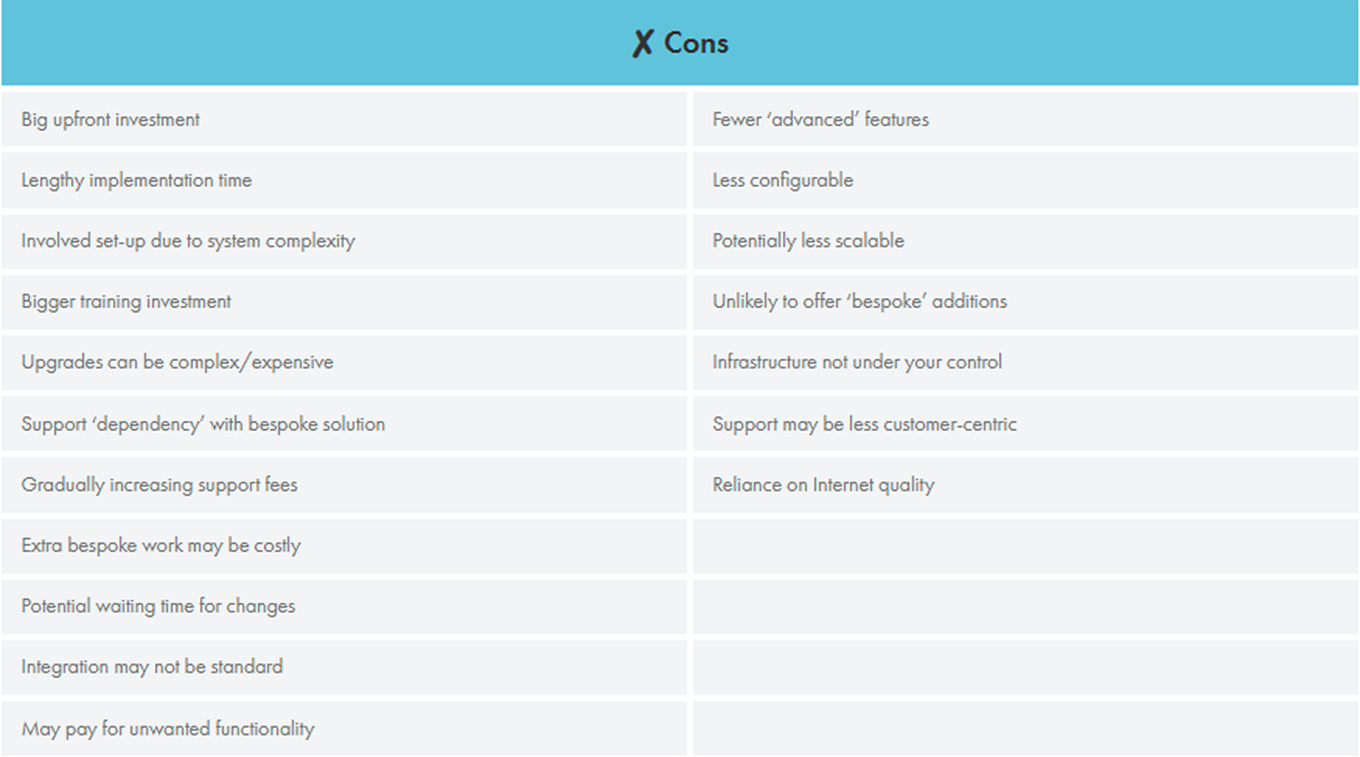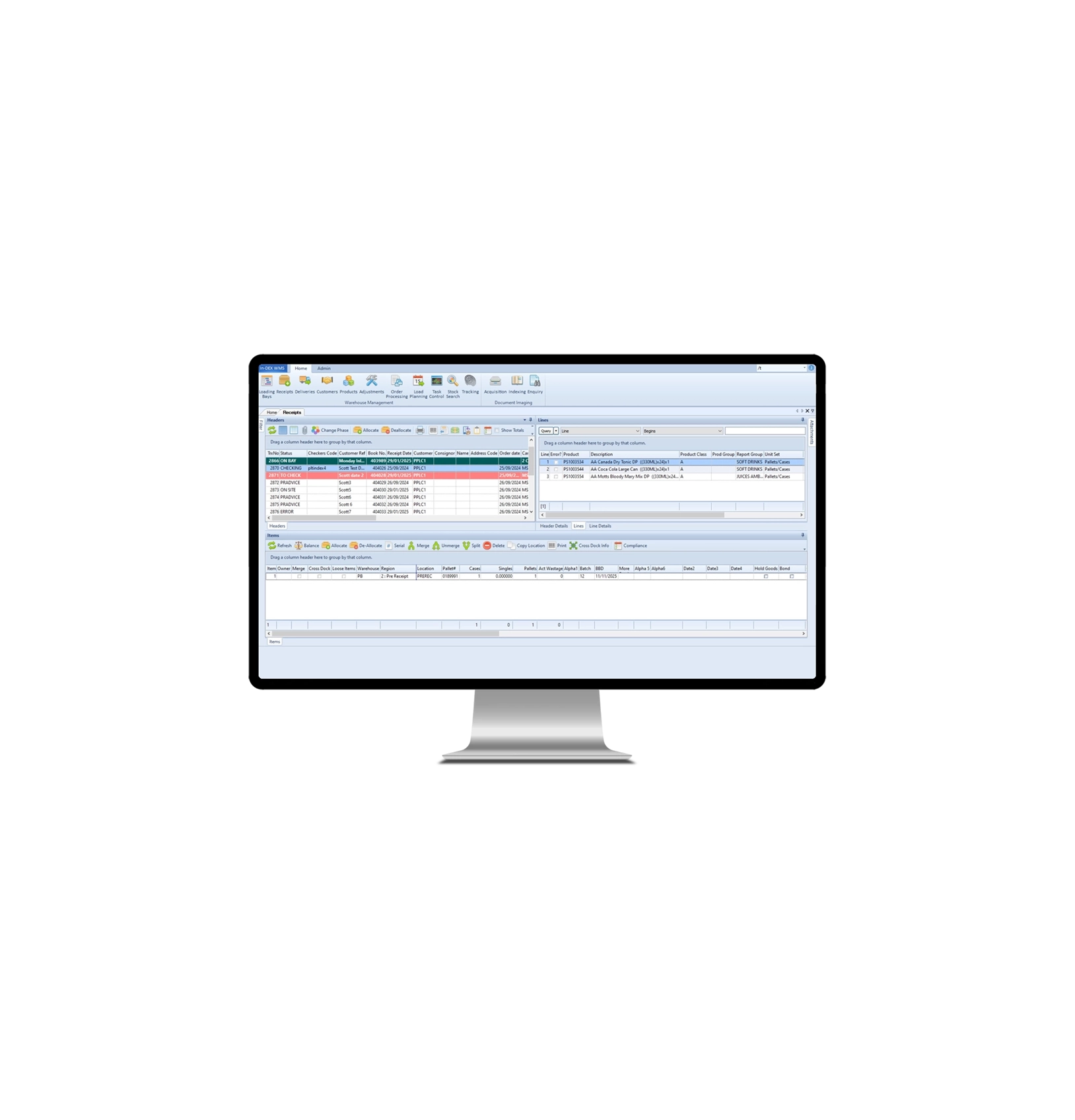What Is a Cloud WMS?
What Is a Cloud WMS?
What Is a Cloud WMS?
15 Jan 2024
 Aptean Staff Writer
Aptean Staff Writer 
A cloud WMS, or Warehouse Management System, is a software system that is delivered over the Internet.
The purpose of any WMS system is to optimise warehouse operations in the in 3PL Logistics, Supply Chain, Distribution, Wholesale, Manufacturing and Retail sectors. Ways in which it does this include automating the tasks involved in inventory management, reducing the time between the arrival and shipment of goods, and saving on associated costs. WMS software should provide analytic and reporting functions that can be used to forecast business and inform managerial decisions. The data the WMS collates needs to be stored on a server. Traditionally, WMS Warehouse Management Systems have been based on company premises using an on-site server that is developed and maintained by company staff, or partners. As technology has advanced and internet access has improved exponentially, cloud-based WMS systems are becoming more and more convenient for reasons that this article will explore below.
What Is ‘The Cloud’?
‘The cloud’ refers to the delivery of computing services via the Internet. Cloud computing offers on-demand access to resources such as servers (both physical and virtual), applications, data storage, databases, networking, software, analytics and intelligence.
These resources are hosted at a remote data centre. Data centres house computer systems, as well as the equipment and hardware needed to connect computer systems to the Internet and other business networks.
Data centres are managed by a cloud services provider (CSP) who usually charge a monthly subscription fee or invoice clients according to the cloud services they use.
There are three ways to deploy cloud services – public cloud, private cloud, or hybrid cloud – and four general categories of cloud computing services – infrastructure as a service (IaaS), platform as a service (PaaS), software as a service (SaaS) and server-less.
A cloud WMS falls within the SaaS category. This is where software applications are delivered over the Internet and accessed with a web browser on a phone, tablet, or computer. The CSP will manage the software application, its underlying infrastructure and any maintenance, such as software upgrades and security patching.
What Is a Cloud-Based WMS?
A cloud WMS is a software application that you access through a connection to the internet.
Your system and data are hosted on a segregated or private server managed by a CSP, who will charge you a fee for their services.
However, with your data hosted by a third-party, you avoid costs associated with installing software infrastructure in your warehouse.
This also provides your data with some additional security, since it will be protected behind a variety of security protocols that limit who can access it and what they see.
With a cloud WMS, you can manage and store your inventory in the cloud.
How Is a Cloud WMS Different to a Server-Based WMS?
A cloud WMS has many advantages over an on-site server. For example:
Easy delivery–with the server being stored remotely in a data centre and managed by a CSP, you are not responsible for maintenance or system upgrades. There should be no need for you or your partners to travel to the server site
Rapid implementation–cloud- based technology is much quicker to implement, with lower upfront costs. Their attributes are not unique to any one user, so they are easier to support
Anytime access–the WMS system will be accessible from almost any internet-enabled device or location. Real-time visibility is provided via a PC or mobile device with internet access and an intuitive interface
Reduced costs–you do not need to set up and maintain your own IT infrastructure, leading to savings on hardware, software and skilled support staff. The cost of a cloud-based system is shared with other clients of the CSP, making them very cost-effective
Ease of customisation and upgrade–cloud-based systems are simple to scale up or down based on needs and changes in business. They have faster upgrade cycles and can be more responsive to changes in the market or disruption in supply chains. A cloud WMS makes it easy to add or remove storage and process resources as needed, which can give them increased flexibility in meeting customer demand
Increased security–Cloud-based WMSs are more secure than on-premise systems in terms of data protection
Convenient back-up solutions–there are more back-up options that will prevent system downtime. Your system will not go down when large scale back-ups occur
An on-site server might still excel in the following areas:
More affordable long term cost because there is no monthly subscription or additional maintenance fees
You own the licence and have complete control of your IT infrastructure, giving you security in the knowledge of where your data is stored and who can access it
More customization options are generally supported, despite having to do the coding yourself
Doesn’t need a high quality internet connection to access and operate
Integration can be easier and the servers can be virtualized to support other business practices outside the warehouse
In-House Warehouse Management System Versus Cloud Hosted WMS
In the past, a medium-sized business wanting to enhance its warehouse operations with a capable, affordable warehouse management system (WMS) faced difficult choices.
WMS Benefits
A WMS can deliver real benefits in efficiency and productivity performance by supporting better working processes, promoting accuracy and sharing information faster.
But formerly the choice was often between a simple, but inadequate control package, or an over-specified mid-level enterprise system.
The latter often involved big upfront costs in software, equipment and internal resource. But more recently, advanced cloud-based WMS applications have changed this.
Server Based WMS
In recent years the server-based WMS has reached an advanced stage of development, with high-level functionality, extensively configurable options, broad modular scope and multiple integration options. Typically, although usually based on ‘standard’ software, many users consider their system a starting point, something to grow and develop with their business. So in time if not at first, these systems are enhanced with customised extras, in effect making them semi-bespoke solutions.
For larger more mature businesses with adequate internal resources, this may be key to IT strategy. With ample personnel to specify development, implement changes, and manage infrastructure it is practical and desirable to have a system shaped around your business needs. But for smaller-scale enterprises with fewer people and less expertise, this may not be the best choice. The continued improvement of cloud-hosted inventory management systems suggests there is now a valid alternative.
Advantages and Disadvantages of in House WMS
There is no doubt that a system that adapts to business change provides something extra.
If your challenge is to onboard new customers and products, or embrace new markets all of which need different working methods, a system that keeps pace will mean a competitive advantage.
This does assume any changes you need are delivered at a sensible cost in timescales that align with your business changes.
An efficient in-house IT resource or external supplier who understands and responds quickly is clearly essential in achieving this.
But there are downsides. Funding an in-house IT department to develop and maintain a system is expensive.
A cynical person might observe that it can be an expanding cost centre, while a truly cynical one might add that it can even start to affect the primary function of a business!
There are pitfalls too with external suppliers. Not only can you become dependent on them, but sometimes on their specific employees. If your system is extensively customised this can also make regular annual support, as well as system upgrades (where possible) increasingly expensive.
Cloud Hosted WMS
An alternative option, generally but not exclusively suited to the medium-scale enterprise is the cloud-hosted WMS.
Pros
Though not always competitive on functionality with leading established WMS’, some are now developed to a level that satisfies the majority of typical user needs.
In addition, they offer faster implementation, lower set up and training costs and ongoing rental that can be met from operating budgets.
Inclusive support and upgrades, and particularly for web-dependent enterprises standard API connectivity, are also plus points.
Of course, there are some drawbacks.
Cons
Some cloud WMS may never offer the same features and configurability you could get with your own ‘semi-bespoke’ system.
This is because the more developed a system is, the more complex the underlying code.
With a multi-tenanted system – one used in standard form by many companies – it makes support more complex when reliability must be key.
So there is a trade-off between using a cost-effective system giving most of what you need, and accepting that, standard upgrades aside, you will not get everything you want.
Best Solution is Based on Your Business
It’s a decision to make based on your own business situation.
There are good reasons to have a system you can adapt, and for some that’s essential.
That you also manage your IT infrastructure means you control your destiny in terms of both software and hardware.
Those things cannot be achieved with a cloud-hosted WMS, yet as the better systems continue to improve there are sound reasons why they could be the right choice for your business.
There is some compromise, but it could deliver greatly reduced cost and management time compared to the alternative.


Find out more about our cost-effective, versatile and fully featured WMS software suite, designed to meet the diverse needs of your business. Contact us today or schedule a demo.
Want to see our WMS software in action?
We’ve got the specialised WMS solutions you need to conquer your industry challenges.



